- Home
- H. Beam Piper
Fuzzy Sapiens f-2 Page 2
Fuzzy Sapiens f-2 Read online
Page 2
Victor Grego had thought of that at once; he had fought desperately, viciously, and with all the resources of the company, to prevent the recognition of the Fuzzies as sapient beings and the invalidation of the company’s charter. The battle had ended in court, with Jack Holloway charged with murder for shooting a company gunman and a company executive name Leonard Kellogg similarly charged for kicking to death a Fuzzy named Goldilocks. The two cases, tried as one, had hinged on the question of the sapience of the Fuzzies. On the docket, it had been People of the Colony of Zarathustra versus Holloway and Kellogg. His lawyer, Gus Brannhard, had insisted on referring to it as Friends of Little Fuzzy versus The Chartered Zarathustra Company.
Little Fuzzy and his friends had won, and with their sapience recognized, the company’s charter was out the airlock, and so was the old Class-III Colonial Government, and Space Commodore Napier, the commandant of Xerxes Base, had been compelled, since Zarathustra was without legal government, to proclaim martial rule and supervise the establishment of a new Class-IV Government. He had appointed Bennett Rainsford Governor.
And just who do you suppose Ben Rainsford appointed as Commissioner of Native Affairs?
Well, somebody had to take it, and who’d started all this Fuzzy business, anyhow?
The five newcomers had finished their Extee-Three, and been given their shoulder-bags and their steel chopper-diggers, and were trying the balance of the latter and beheading imaginary land-prawns with them. He opened the other tin of Extee-Three and divided it. This time, they nibbled slowly, with appreciative comments. Little Fuzzy gathered up the two empty tins and put them in the wastebasket.
“How you come this place?” he asked, when Little Fuzzy had rejoined the circle.
They all began talking at once; with Little Fuzzy’s help, he got the general sense of it. They had heard strange noises and had come to the edge of the woods, and seen frightening things. But Fuzzies were people; they investigated, even if they were frightened. Then they had seen other people. Hagga-gashta, big people, and shi-mosh-gashta, people like us.
Little Fuzzy instantly corrected the speaker. Hagga-gashta were just Hagga, Big Ones, and shi-mosh-gashta were Fuzzies. Why were the Gashta called Fuzzies? Because Pappy Jack said so, that was why. That seemed to settle it.
“But why come this place? You come from another place, far away. Why come here?”
More argument. Little Fuzzy was explaining what he meant, and the newcomers were answering.
“Tell them here are many-many zatku. They come, many lights and darks. Many-many.”
Fuzzies could count up to five, the fingers of one hand. The other hand had to be used to count with. They could count in multiples of five to a hand of hands, and after that it was many, and then many-many. Somewhere in the mass of Fuzzy study notes that were piling up was a suggestion to see what Fuzzies could do with an abacus.
So, maybe three months ago and six or eight hundred miles north of here, this gang had heard that the country to the south was teeming with zatku, and they had joined the volkerwanderung. Little Fuzzy and his family had been in the advance-guard; the big rush was still coming. He tried to find out how they had learned of it. Other Fuzzies had told them: that was as far as he could get.
Anyhow, they had gotten into the pass to the north and come down into Cold Creek Valley, and here they were. They had come to the edge of the woods, seen the activity at the camp, and decided, from the presence of other Fuzzies, that there was nothing to hurt them, and had come in.
“Many things to hurt!” Little Fuzzy contradicted, instantly and vehemently. “Must watch all-time. Not go in front of things that move. Not go under things that go up off ground. Not touch strange things. Ask Big Ones what will hurt. Big Ones try not to hurt Fuzzies, Fuzzies must help.”
He continued at length; the newcomers exchanged apprehensive glances and low-voiced comments. Finally, he picked up his chopper-digger and rose.
“Bizzo,” he said. “Aki-pokko-so.”
Come; I show you. He got that easily enough. “First, show police place,” he advised. “Make marks with fingers; get bright things for necks.”
“Hokay,” Little Fuzzy agreed. Go polis, make fin-gap’int, get idee-disko.”
About the time Terrans had mastered classical native Fuzzy, the Fuzzies would all be talking pidgin-Fuzzy. The newcomers made way for Little Fuzzy, and trooped outside after him, like tourists following a guide. He watched them cross the open space in front of the house and turn left toward the bridge over the little stream. Then he went back to his desk and made a screen-call to prod up the tentmaker in Red Hill on the order of shoulder-bags — “Maybe tomorrow, Mr. Holloway; we’re doing all we can.” — and then made a stenomemo about finding more Extee-Three. Then he went back to doodling and scribbling notes on the table of organization and operation-scheme for the Commission of Native Affairs, on which he seemed to be getting nowhere at a terrific speed.
“Hello, Jack. Another gang joined up?”
He raised his head. The speaker was coming in the door, a stocky, square-faced man in blue. There was a lighter oval on the side of his beret, where something had been removed, and the collar of his tunic showed that his major’s single star had quite recently replaced a first lieutenant’s double bars. He wore a band on his left arm hand-lettered ZNPF, otherwise his uniform was Colonial Constabulary.
“Hello, George. Come in and rest your feet. You look as though they need it.”
Major George Lunt, Commandant, Zarathustra Native Protection Force, agreed wearily and profanely, taking off his beret and his pistol-belt and dropping them on the makeshift table. Then, looking around, he went to a chair and lifted from it four loose-leaf books and a fiberboard carton full of papers, marked old atomic-bomb bourbon, and set them on the floor. Then he unzipped his tunic, sat down, and got out his cigarettes.
“Office hut’s all up, now,” he reported. “They’re waiting on a scow-load of flooring for it.”
“I was talking on screen about that an hour ago. It’ll be here by this evening.” By this time tomorrow, all this junk could be moved out, and the place would be home again. “Any men coming out on the afternoon boat?”
“Three. They only got the recruiting office opened yesterday, and there isn’t any big rush of recruits. Captain Casagra says he’ll lend us fifty Marines and some vehicles, temporarily. How many Fuzzies have we, now, with this new bunch?”
He counted mentally. His own family: Little Fuzzy and Mamma Fuzzy and Baby Fuzzy and Mike and Mitzi and Ko-Ko and Cinderella. George Lunt’s Fuzzies. Dr. Crippen and Dillinger and Ned Kelly and Lizzie Borden and Calamity Jane. The nine whom they had found at the camp when they returned from Mallorysport after the trial, and the six who came in day before yesterday, and four yesterday morning, and the two last evening, and now this gang.
“Thirty-eight, counting Baby. That’s a lot of Fuzzies,” he observed.
“You just think it is,” Lunt told him. “The patrols we’ve had out north of here say they’re still coming. This time next week, we’ll have a couple of hundred.”
And before then, the ones who were here would begin to feel overcrowded, and lot of nice new shoppo-diggo would get bloodied. He said so, adding:
“You have a tactical plan for dealing with a native uprising, Major?”
“I’ve been worrying about it. You know, we could get rid of a lot of them,” Lunt said. “Just mention on telecast that we have more Fuzzies than we know what to do with, and we’d have to start rationing them.”
They’d have to do that, anyhow. With all the publicity since the trial, everybody was Fuzzy crazy. Everybody wanted Fuzzies of their own, and where there’s a demand, there are suppliers, legitimate or otherwise. It was a wonder the woods weren’t full of people catching Fuzzies to sell now. For all he knew, maybe they were.
And a lot of people shouldn’t be allowed to have Fuzzies. Not just sadists and perverts, either. People who’d want Fuzzies because the Joneses had them,
and then neglect them. People who would get tired of them after a while and dump them outside town. People who couldn’t get it through their moronic heads that Fuzzies were people too. So they’d have to set up some regular system of Fuzzy adoption.
He’d thought, at first, of Ruth Ortheris, Ruth van Riebeek she was, now, for that, but she and her husband were needed too urgently here at the camp on the Fuzzy-study program. There were just too many things about Fuzzies neither he nor anybody else knew, yet, and he’d have to find out what was good for them and what wasn’t.
He looked at the clock; 0935; that would be 0635 in Mallorysport. After lunch, which would be mid-morning there, he’d call her and find out how soon she’d be coming out.
CHAPTER THREE
RUTH VAN RIEBEEK — she had resigned both her Navy commission and her maiden name simultaneously five days ago — ought, she told herself, to be happy and excited. She was clear out of the Navy Intelligence and its dark corridors of deceit and suspicion, and she and Gerd were married, and any scientific worker in the Federation would give anything to be in her place. A whole new science, the study of a new race of sapient beings; why, it was only the ninth time that had happened in the five centuries since the first Terran starship left the Sol System. A tiny spot of light — what they really knew about the Fuzzies — surrounded by a twilight zone of what they thought they knew, mostly erroneous. And beyond that, the dark of ignorance, full of strange surprises, waiting to be conquered. And she was in on the very beginning of it. It was a wonderful opportunity.
But wasn’t it just one Nifflheim of a way to spend a honeymoon?
When she and Gerd were married, everything was going to be so wonderful. They would spend a lazy week here in the city, just being happy together and making plans and gathering things for their new home. Then they would go back to Beta Continent, and Gerd would work the sunstone diggings in partnership with Jack Holloway while she kept house, and they would spend the rest of their lives being happy together in the woods, with their four Fuzzies, Id and Superego and Complex and Syndrome.
The honeymoon, as such, had lasted one night, here at the Hotel Mallory. The next morning, before they were through breakfast, Jack Holloway was screening them. Space Commodore Napier had appointed Ben Rainsford Governor, and Ben had immediately appointed Jack Commissioner of Native Affairs, and now Jack was appointing Gerd to head his study and research bureau, taking it for granted that Gerd would accept. Gerd had, taking it for granted that she would agree, as, after a rebellious moment, she had.
After all, weren’t they all responsible for what had happened? The Fuzzies certainly weren’t; they hadn’t gone to law to be declared sapient. All a Fuzzy wanted was to have fun. And they were responsible to the Fuzzies for what would happen to them hereafter, all of them together, Ben Rainsford and Jack Holloway and she and Gerd, and Pancho Ybarra. And now, Lynne Andrews.
Through the open front of the room, on the balcony, she could hear Lynne’s voice, half amused and half exasperated:
“You little devils! Bring that back here! Do-bizzo. So josso-aki!”
A Fuzzy — one of the two males, Superego — dashed inside with a lighted cigarette, the other male, Id, and one of the girls, Syndrome, pursuing. She put in her earplug and turned on her hearing-aid, wishing for the millionth time that Fuzzies had humanly audible voices. Id was clamoring that it was his turn and trying to take the cigarette away from Superego, who pushed him off with his free hand, took a quick puff, and handed it to Syndrome, who began puffing hastily on it. Id started to grab it, then saw the cigarette she was smoking and ran to climb on her lap, pleading:
“Mummy Woof, josso-aki smokko.”
Lynne Andrews, slender and blonde, followed them into the room, the earplug wire of her hearing-aid leading down from under the green bandeau around her head. She carried Complex, squirming in her arms. Complex was complaining that Auntie Lynne wouldn’t give her smokko.
“That’s one Terran word they picked up soon enough,” Lynne was commenting.
“Let her have one; it won’t hurt her.” With scientific caution, she added, “It doesn’t seem to hurt them.”
She knew what Lynne was thinking. She had been recruited — shanghaied would probably be a better word — from Mallorysport General Hospital because they wanted somebody whose M.D. was a little less a matter of form than hers or Pancho Ybarra’s. Lynne was a pediatrician, which had seemed appropriate because Fuzzies were about the size of year-old human children and because a pediatrician, like a veterinarian, has to be able to get along with a minimum of cooperation from the patient. Unfortunately, she was carrying it beyond analogy and equating Fuzzies with human children. A year-old human oughtn’t to be allowed to smoke, so neither should a Fuzzy, who might be fifty for all anybody knew to the contrary.
She gave Id her cigarette. Lynne, apparently much against her better judgment, sat down on a couch and lit one for Complex, and one for herself, and then lit a third for Superego. Now all the Fuzzies had smokko. Syndrome ran to one of the low cocktail tables and came back with an ashtray, which she put on the floor. The others sat down with her around it, all but Id, who stayed on Mummy Woof’s lap.
“Lynne, they won’t take anything that hurts them,” she argued. “Alcohol, for instance.”
Lynne had to agree. Any Fuzzy would take a drink, just to do what the Big Ones were doing — once. The smallest quantity affected a Fuzzy instantly, and a tipsy Fuzzy was really something to see, and then the Fuzzy would have a sick hangover, and never took a second drink. That was one of the things she’d found out while working with Ernst Mallin, the Company psychologist, and doublecrossing him and the company for Navy Intelligence.
“Well, some of them don’t like smokko.”
“Some human-type people don’t, either. Some human-type people have allergies. What kind of allergies do Fuzzies have? That’s something else for you to find out.”
She set Id on the table and pulled one of the loose-leaf books toward her, picking up a pen and writing the word at the top of the blank page. Id picked up another pen and began making a series of little circles on the notepad.
The door from the hallway opened into the next room; she heard Pancho Ybarra’s voice and her husband laughing. The three on the floor put their cigarettes in the ashtray and jumped to their feet, shrieking, “Pappy Ge’hd! Unka Panko!” and dashed through the door into the next room. Id, dropping the pen, jumped down and ran after them. In a moment, they were all back. Syndrome had a Navy officer’s cap on her head, holding it up with both hands to see from under it. Id followed, with Gerd’s floppy gray sombrero, and Complex and Superego came in carrying a bulky briefcase between them. Gerd and Pancho followed. Gerd’s suit, freshly pressed that morning, already rumpled, but the Navy psychologist was still miraculously handbox-neat. She rose and greeted them, kissing Gerd; Pancho crossed the couch and sat down with Lynne.
“Well, what’s new?” Gerd asked.
“Jack called me, about an hour ago. They have the lab hut up, and all the equipment they have for it moved in. They have some bungalows up, a double one for us. Jack showed me a view of it; it’s nice. And I was bullying people about the computer and the rest of the stuff. We can all go out as soon as we have everything here together.”
“This evening, if we want to run ourselves ragged and get in in the middle of the night,” Gerd said. “After lunch tomorrow, if we want to take our time. Ben Rainsford wants us for dinner this evening.”
Lynne thought that sounded a trifle cannibalistic, and voted for tomorrow. “How did you make out at the hospital?” she asked.
“They gave us everything we asked for, no argument at all,” Gerd said. “And the same at Science Center. I was surprised.”
“I wasn’t,” Pancho said. “There’s a lot of scuttlebutt about the Government taking both over. In a couple of weeks, we may be their bosses. What are we going to do about lunch; go out or have it sent in?”
“Let’s have it sent in,”
she said. “We can check over these equipment lists, and you two can chase up anything that’s left out this afternoon.”
Pancho got out his cigarette case, and discovered that it was empty.
“Hey, Lynne; so-josso-aki-smokko,” he said.
Well, it would be a honeymoon. Sort of crowded, but fun. And Pancho and Lynne were beginning to take an interest in each other. She was glad of that.
CHIEF JUSTICE FREDERIC Pendarvis leaned his elbows on the bench and considered the three black coated lawyers before him in the action of John Doe, Richard Roe, et alii, An Unincorporated Voluntary Association, versus The Colonial Government of Zarathustra.
One, at the defendants’ lectern, was a giant; well over six feet and two hundred pounds, his big-nosed face masked by a fluffy gray-brown beard, an unruly mop of gray-brown hair suggesting, incongruously, a halo. His name was Gustavus Adolphus Brannhard, and until he had been rocketed to prominence in what everybody was calling the Fuzzy Trial, he had been chiefly noted for his ability to secure the acquittal of obviously guilty clients, his prowess as a big-game hunter, and his capacity, without visible effect, for whisky. For the past five days, he had been Attorney-General of the Colony of Zarathustra.
The man standing beside and slightly behind him would have seemed tall, too, in the proximity of anybody but Gus Brannhard. He was slender and suavely elegant, and his thin, aristocratic features wore an habitually half-bored, half-amused expression, as though life were a joke he had heard too many times before. His name was Leslie Coombes, he was the Zarathustra Company’s chief attorney, and from the position he had taken it looked as though he were here to support his erstwhile antagonist in People versus Holloway and Kellogg.
The third, at the plaintiff’s lectern, was Hugo Ingermann; Judge Pendarvis was making a determined effort not to let that prejudice him against his clients. To his positive knowledge, Ingermann had been in court at least seven times in the last six years representing completely honest and respectable people, and it was possible, though scarcely probable, that this might be the eighth occasion. He was, of course, a member of the Bar, due to lack of evidence to support disbarment proceedings, so he had a right to stand here and be heard.

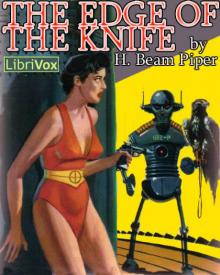 The Edge of the Knife
The Edge of the Knife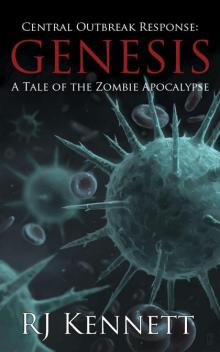 Genesis
Genesis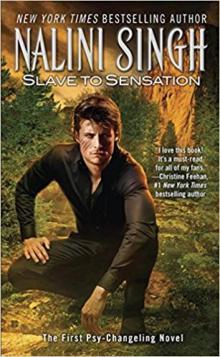 A Slave is a Slave
A Slave is a Slave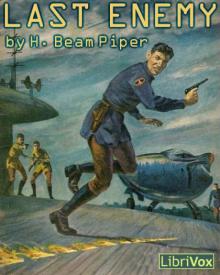 Last Enemy
Last Enemy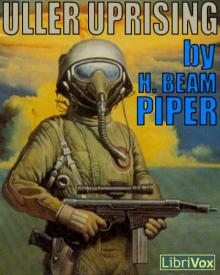 Uller Uprising
Uller Uprising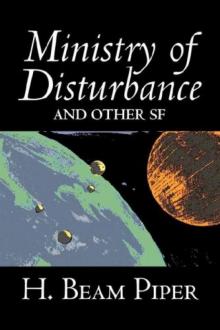 Ministry of Disturbance
Ministry of Disturbance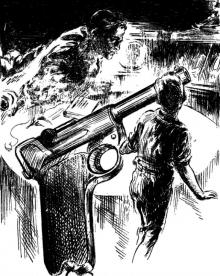 Time and Time Again
Time and Time Again The Mercenaries
The Mercenaries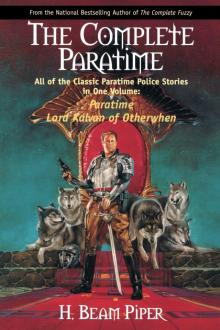 Police Operation
Police Operation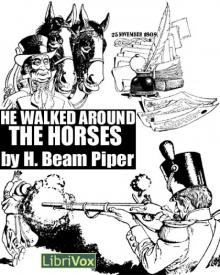 He Walked Around the Horses
He Walked Around the Horses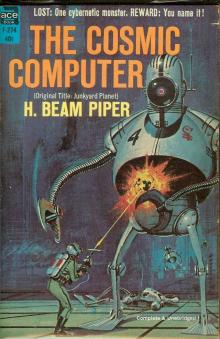 Time Crime
Time Crime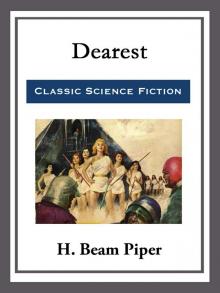 Dearest
Dearest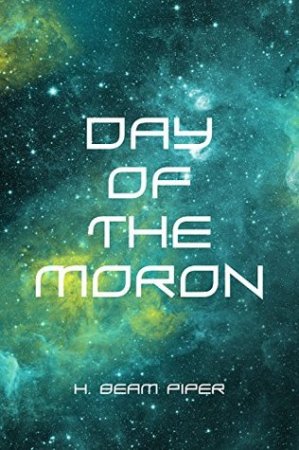 Day of the Moron
Day of the Moron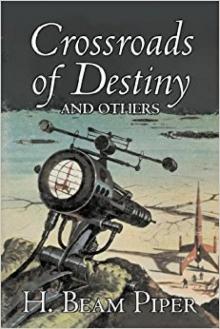 Crossroads of Destiny
Crossroads of Destiny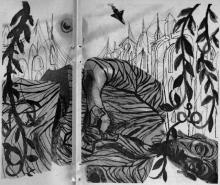 Graveyard of Dreams
Graveyard of Dreams The Cosmic Computer
The Cosmic Computer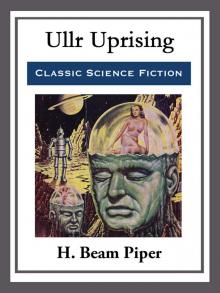 Ullr Uprising
Ullr Uprising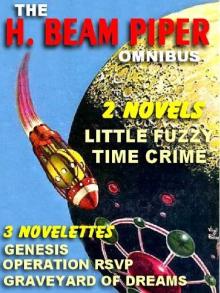 Operation R.S.V.P.
Operation R.S.V.P.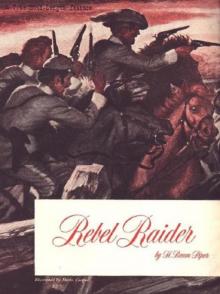 Rebel Raider
Rebel Raider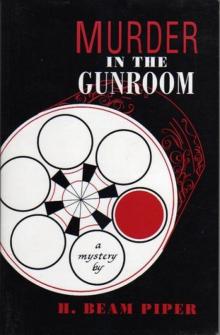 Murder in the Gunroom
Murder in the Gunroom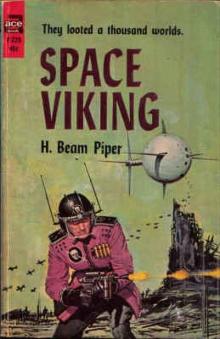 Space Viking
Space Viking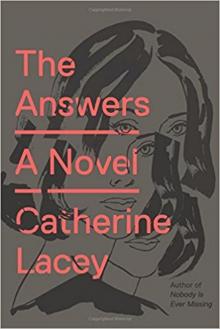 The Answer
The Answer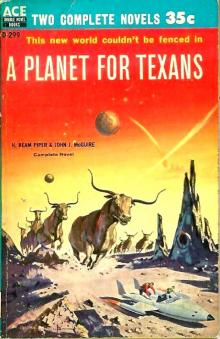 A Planet for Texans (aka Lone Star Planet)
A Planet for Texans (aka Lone Star Planet)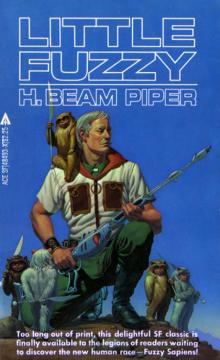 Little Fuzzy
Little Fuzzy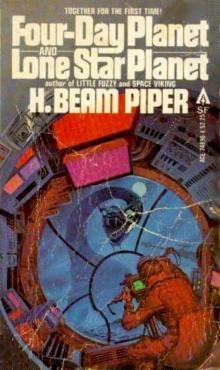 Four-Day Planet
Four-Day Planet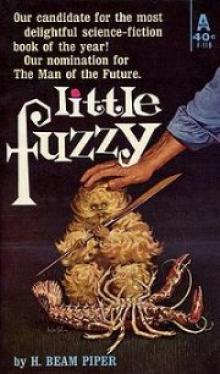 Little Fuzzy f-1
Little Fuzzy f-1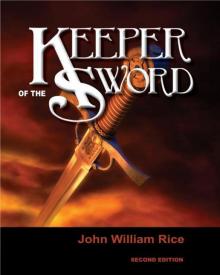 Keeper
Keeper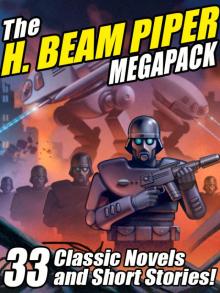 The H. Beam Piper Megapack
The H. Beam Piper Megapack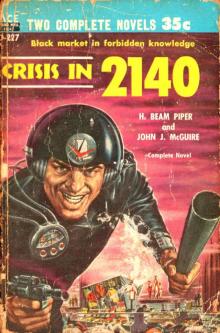 H. Beam Piper
H. Beam Piper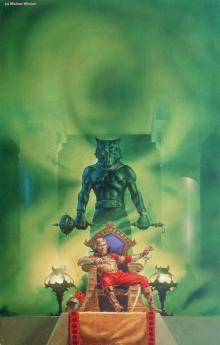 Lord Kalvan of Otherwhen
Lord Kalvan of Otherwhen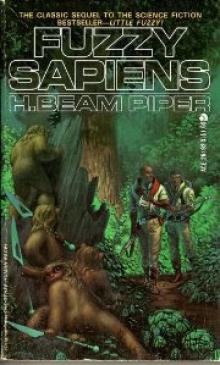 Fuzzy Sapiens f-2
Fuzzy Sapiens f-2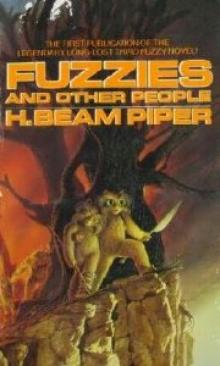 Fuzzies and Other People f-3
Fuzzies and Other People f-3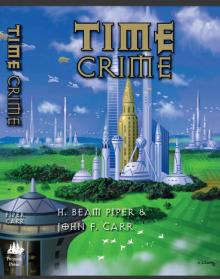 TIME PRIME
TIME PRIME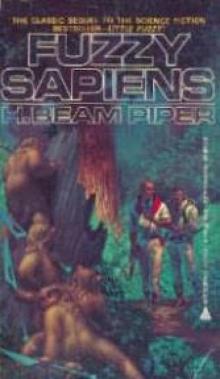 Fuzzy Sapiens
Fuzzy Sapiens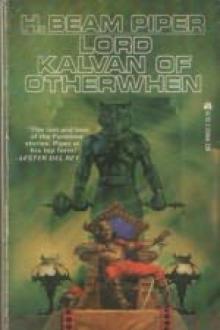 Lord Kalvan of Otherwhen k-1
Lord Kalvan of Otherwhen k-1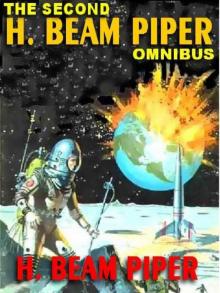 The Second H. Beam Piper Omnibus
The Second H. Beam Piper Omnibus